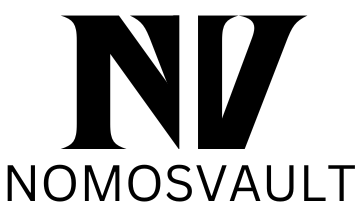When “Standard Contracts” Can Ruin Careers
You’re an up-and-coming musician who just landed a record deal. The excitement is overwhelming—your dream of making music for a living is finally coming true. But when you sit down to read the contract, it’s filled with confusing legal jargon, unfamiliar terms, and clauses that seem too good (or too complicated) to be true. What do you do?
This is where an artist contract lawyer comes in—a legal expert who specializes in helping artists and entertainers navigate the complexities of contract negotiations. Whether you’re signing a recording contract, licensing your art, or negotiating royalties, an artist contract lawyer ensures that your rights are protected and that you get the best possible deal.
What Is Contract Negotiation for Artists and Entertainers?
Breaking Down the Basics
Contract negotiation is the process of discussing and agreeing on the terms of a contract between two or more parties. For artists and entertainers, these contracts often involve creative work, intellectual property, and financial compensation.
Key Objectives of Contract Negotiation
- Protecting Rights: Ensuring your creative work is used only as agreed upon.
- Securing Fair Compensation: Negotiating royalties, advances, and other payments.
- Clarifying Expectations: Defining roles, responsibilities, and deliverables.
- Avoiding Exploitation: Preventing unfair or one-sided terms that could harm your career.
Real-Life Example: Sarah’s Story
Sarah, a talented painter, was offered a licensing agreement for her artwork to be used on merchandise. Excited by the opportunity, she signed the contract without reading the fine print. Later, she discovered that the company owned the rights to her work indefinitely and could use it however they pleased. A friend recommended she consult an artist contract lawyer , who helped renegotiate the terms to ensure Sarah retained ownership of her art.
Stories like Sarah’s highlight why understanding contract negotiation isn’t just about signing papers—it’s about safeguarding your future and your creative legacy.
Types of Contracts in the Arts and Entertainment Industry
Not all contracts are the same. Here’s an overview of the most common types artists and entertainers encounter:
1. Recording Contracts
- What It Is: Agreements between musicians and record labels outlining album production, distribution, and royalties.
- Examples: Advances, royalty splits, and exclusivity clauses.
Recording Industry Association of America (RIAA): Recording Contracts Overview .
2. Licensing Agreements
- What It Is: Contracts allowing others to use your creative work, such as music, art, or writing, for a fee.
- Examples: Merchandise licensing, sync licenses for music in films, or stock photography agreements.
3. Management Contracts
- What It Is: Agreements between artists and managers detailing responsibilities and compensation.
- Examples: Percentage of earnings, scope of services, and termination clauses.
4. Publishing Contracts
- What It Is: Deals between authors or songwriters and publishers for distributing and promoting their work.
- Examples: Royalties, copyright ownership, and territorial rights.
Authors Guild: Publishing Contract Guide .
Writers Guild of America (WGA): Screenwriting Contracts .
5. Performance Contracts
- What It Is: Agreements for live performances, tours, or appearances.
- Examples: Payment terms, cancellation policies, and technical requirements.
International Federation of Musicians (FIM): Live Performance Rights .
6. Collaboration Agreements
- What It Is: Contracts between co-creators defining ownership, credit, and revenue sharing.
- Examples: Film partnerships, music collaborations, or joint art projects.
How an Artist Contract Lawyer Helps You
Navigating contracts can be overwhelming, especially for creatives unfamiliar with legal terminology. An artist contract lawyer plays a vital role in ensuring fairness and protecting your interests. Here’s how they add value:
1. Reviewing and Drafting Contracts
They analyze existing contracts or draft new ones to ensure clarity and fairness.
2. Negotiating Terms
From royalty rates to ownership rights, a lawyer advocates for your best interests during discussions.
3. Protecting Intellectual Property
They ensure your creative work is safeguarded against unauthorized use or exploitation.
4. Resolving Disputes
If disagreements arise, your lawyer negotiates solutions or represents you in legal proceedings.
Arbitration and Mediation Center (WIPO): Resolving Disputes .
FindLaw: Contract Disputes .
5. Advising on Long-Term Implications
They help you understand how contract terms could impact your career years down the line.
Steps to Take Before Signing a Contract
If you’re presented with a contract, here’s what you should do before putting pen to paper:
1. Read the Entire Document
Don’t skim—read every word carefully, including fine print and appendices.
2. Identify Key Terms
Look for clauses related to payment, ownership, duration, and termination.
3. Highlight Unclear Language
Mark any terms or phrases you don’t understand and ask questions.
4. Consult an Artist Contract Lawyer
A lawyer reviews the contract, explains its implications, and suggests changes.
5. Negotiate Favorable Terms
Work with your lawyer to propose revisions that better align with your goals.
Common Mistakes to Avoid
Even well-meaning artists can make costly mistakes when dealing with contracts. Here are some pitfalls to avoid—and how an artist contract lawyer can help:
1. Signing Without Reading
Failing to review terms can lead to unexpected consequences. A lawyer ensures you understand everything.
2. Accepting Verbal Promises
Relying on verbal assurances instead of written agreements is risky. A lawyer insists on documented terms.
3. Overlooking Ownership Rights
Giving away full ownership of your work can limit future opportunities. A lawyer protects your intellectual property.
4. Ignoring Exclusivity Clauses
Exclusive agreements can restrict your ability to work with others. A lawyer negotiates flexibility.
5. Underestimating Long-Term Impact
Short-term benefits may come at a long-term cost. A lawyer helps you weigh pros and cons.
Real-Life Success Stories: Clients Who Thrived
Let’s look at two inspiring examples of how an artist contract lawyer made a difference:
Case Study #1: Mark’s Victory
Mark, an indie filmmaker, was offered a distribution deal but noticed vague language about profit-sharing. His lawyer renegotiated the contract to include transparent accounting and higher royalties, ensuring Mark received fair compensation for his work.
Case Study #2: Emily’s Justice
Emily, a singer-songwriter, discovered her songs were being used in commercials without her permission. Her lawyer filed a lawsuit, securing back royalties and stricter licensing controls for future use.
These stories demonstrate the transformative impact of having a skilled advocate by your side.
FAQs About Artist Contract Lawyers
- What does an artist contract lawyer do?
They review contracts, negotiate terms, protect intellectual property, and resolve disputes for artists and entertainers. - How much does an artist contract lawyer cost?
Fees vary based on complexity, but many offer flat-rate packages for specific services. - Can I negotiate my own contract?
While possible, hiring an artist contract lawyer reduces risks and ensures fairness. - What happens if I sign a bad contract?
Consequences include lost revenue, restricted creative freedom, or legal disputes. A lawyer can help mitigate damage. - What should I bring to my first meeting with a lawyer?
Bring the contract, correspondence, and details about your goals and concerns. - Will an artist contract lawyer help me terminate a contract?
Yes, they assess options for renegotiation, termination, or dispute resolution. - Can a lawyer help me license my work?
Absolutely! They draft agreements to ensure fair terms and protect your rights. - What industries benefit most from artist contract lawyers?
Music, film, visual arts, publishing, and performance industries rely heavily on these experts. - Is there a deadline for renegotiating contracts?
Yes, deadlines vary by agreement, so act quickly to preserve your rights. - Can an artist contract lawyer help with international deals?
Yes, they navigate cross-border regulations and treaties like copyright laws.
Conclusion – Your Art Deserves Fair Terms
Negotiating contracts isn’t just about protecting your work—it’s about building a sustainable career and ensuring your creativity is valued. Whether you’re an actor, musician, writer, or visual artist, an artist contract lawyer is your trusted ally in achieving these goals.
With their expertise, you can navigate complex agreements, avoid costly mistakes, and focus on what matters most—your art. Don’t let fear or uncertainty hold you back—take the first step toward securing your future today.
About to sign a deal? Consult an artist contract lawyer first.
Learn more about Entertainment Lawyers and their specializations : The Ultimate Guide to Entertainment Lawyers: Protecting Creativity in the Legal Arena


One thought on “Artist Contract Lawyer: The Complete Guide to Negotiating Entertainment Agreements”